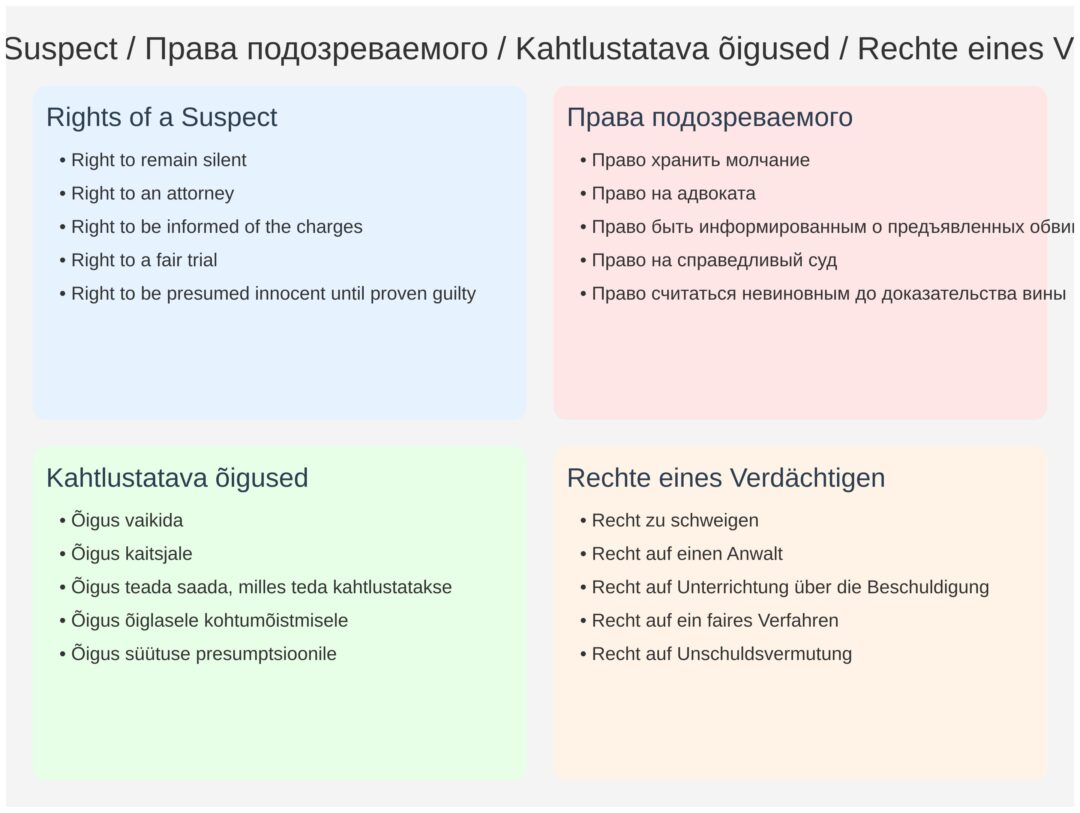In Estonia, the law provides for criminal liability not only for individuals but also for legal entities. While criminal liability is often associated with individuals, companies and organizations can also be held accountable for breaking the law. This article focuses on the key aspects of criminal liability for legal entities and how it differs from the liability of individuals.
What is the Criminal Liability of a Legal Entity?
A legal entity, such as a company, non-profit organization, or other corporate structures, can be held responsible for committing crimes. In Estonia, criminal liability of legal entities means that if an organization commits a crime, or if a crime is committed in the interest or on behalf of the legal entity, the organization can be held accountable. This may include fines, restrictions on activities, or even the dissolution of the organization.
How is Criminal Liability of a Legal Entity Determined?
Criminal liability of a legal entity is determined based on whether the crime was committed by the management or responsible individuals within the organization. If executives or employees act on behalf of the company and commit a crime for the organization’s benefit, the company may be held responsible for those actions. For example, if a company is involved in money laundering, corruption, or other economic crimes, it can be subject to criminal liability.
What Penalties Apply to Legal Entities?
The penalties imposed on legal entities differ from those applied to individuals. The main sanctions for legal entities in Estonia include:
- Fines: The most common punishment is a financial penalty. The amount of the fine can be significant and depends on the severity of the crime and the size of the company.
- Restrictions on Activities: In some cases, the court may impose activity restrictions on the company or suspend its operations.
- Dissolution: In extreme cases, such as when a company is created for criminal purposes or commits systematic violations, the organization may be dissolved by court order.
How Does Criminal Liability for Legal Entities Differ from Liability for Individuals?
Although the principles are similar, the process of determining criminal liability and the penalties for legal entities and individuals differ in several ways:
- Assignment of Liability: For individuals, criminal liability is personal, whereas for legal entities, the organization as a whole is responsible. This means that even if a crime is committed by an individual, the organization can be held liable if it is related to its operations.
- Types of Penalties: Individuals are typically subject to imprisonment or fines. Legal entities, however, are primarily subject to fines, restrictions on activities, or dissolution.
- Responsible Party: In the case of individuals, the specific person is held responsible for their actions. In the case of a legal entity, the entire organization can be held accountable, even if individual employees or managers were the direct perpetrators.
Examples of Criminal Liability for Legal Entities
- Money Laundering and Financial Crimes: If a company is used to conduct illegal financial transactions or launder money, the company may be held liable, even if the actual perpetrators were the executives or accountants.
- Occupational Safety Violations: If a company fails to provide safe working conditions for its employees, leading to serious accidents, the company can be held responsible.
- Corruption: Legal entities can be involved in corruption schemes, such as bribing public officials, and may face criminal liability for such actions.
How to Avoid Criminal Liability for a Legal Entity?
Companies can take several steps to avoid criminal liability:
- Strong Management and Oversight: The leadership must ensure that the company’s activities comply with laws and ethical standards.
- Risk Management: Mechanisms should be implemented to identify and prevent potential legal violations.
- Training: Employees should be regularly trained on legal compliance and company policies, particularly regarding money laundering, corruption, and occupational safety.
Conclusion
Criminal liability for legal entities is an essential part of Estonia’s legal system, ensuring that companies and organizations are held accountable for their actions. Companies need to be aware of the legal risks associated with their activities and take all necessary measures to prevent violations. If a legal entity faces the threat of criminal liability, it is crucial to seek professional legal assistance.
If you have any questions regarding the criminal liability of legal entities or need legal advice, please contact attorney-at-law Ilya Zuev to ensure the best protection of your rights and interests.







